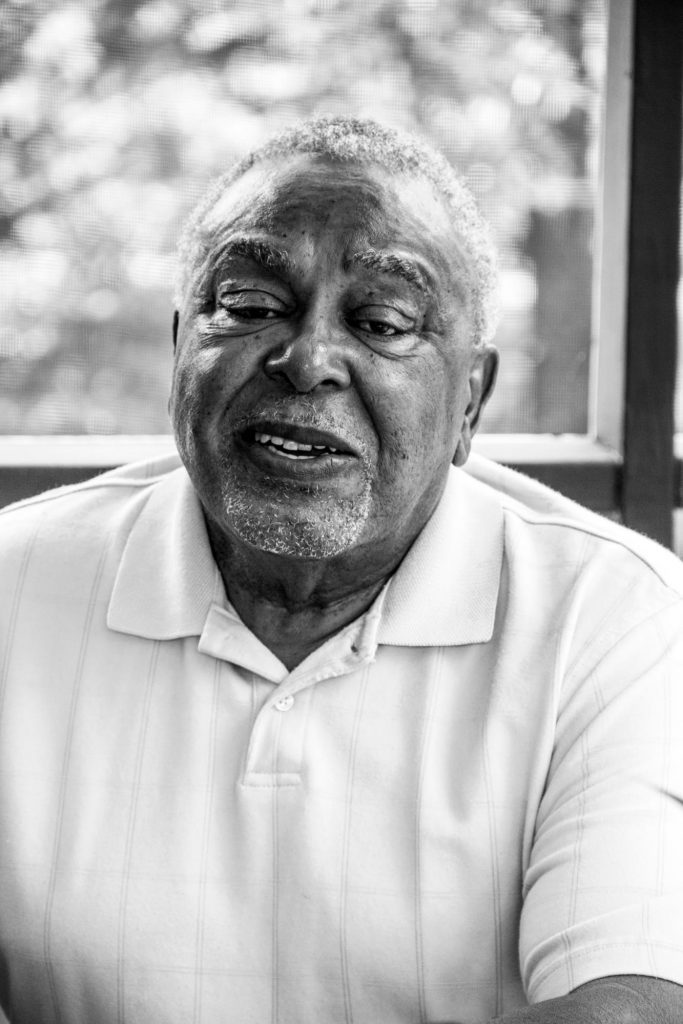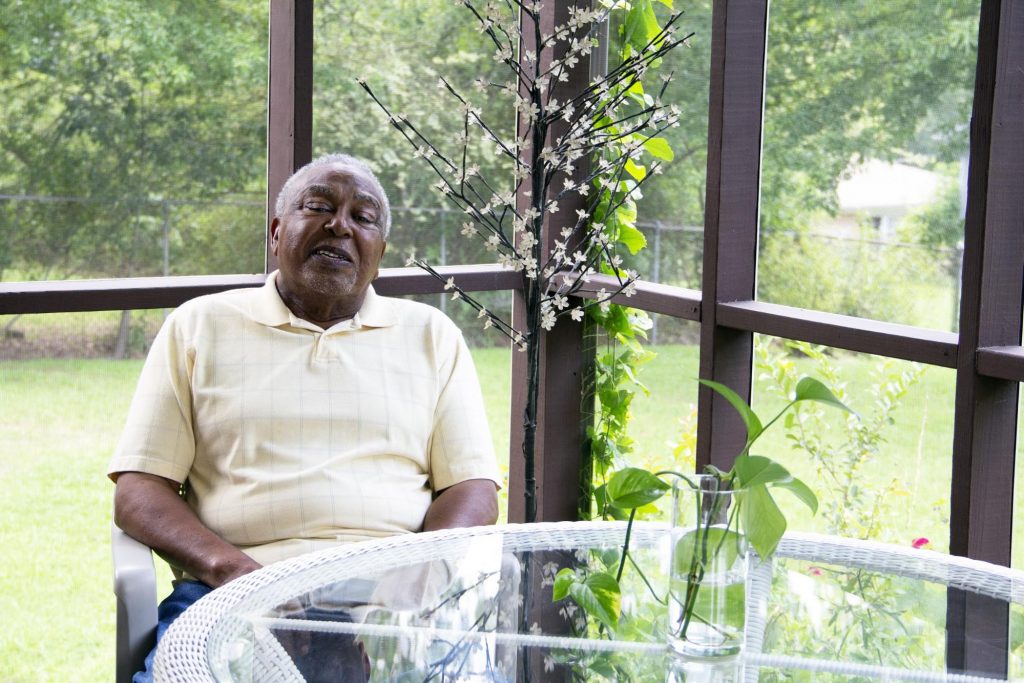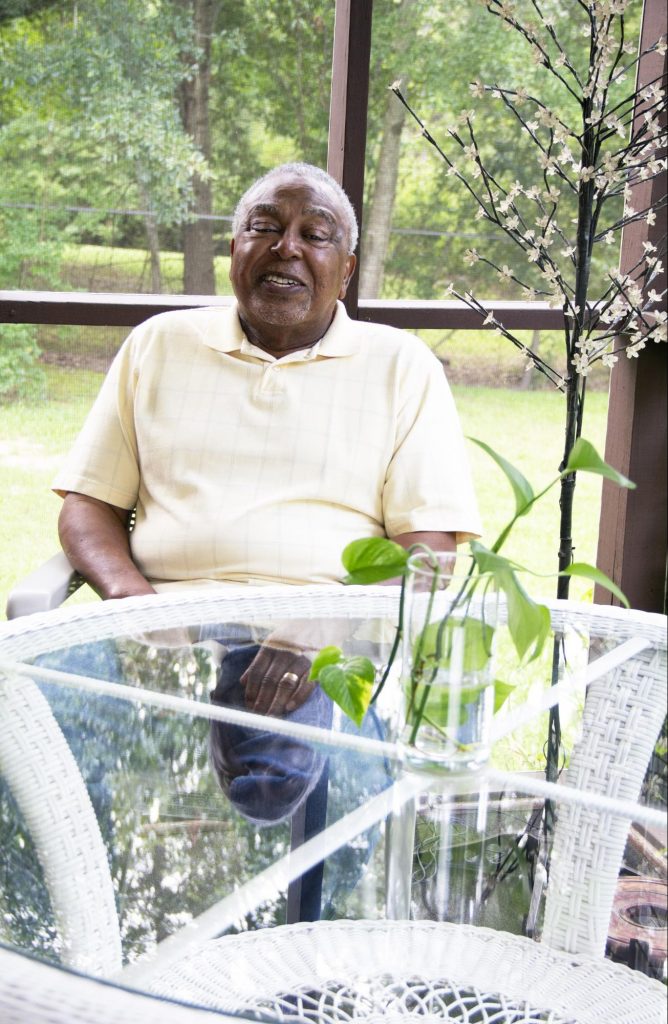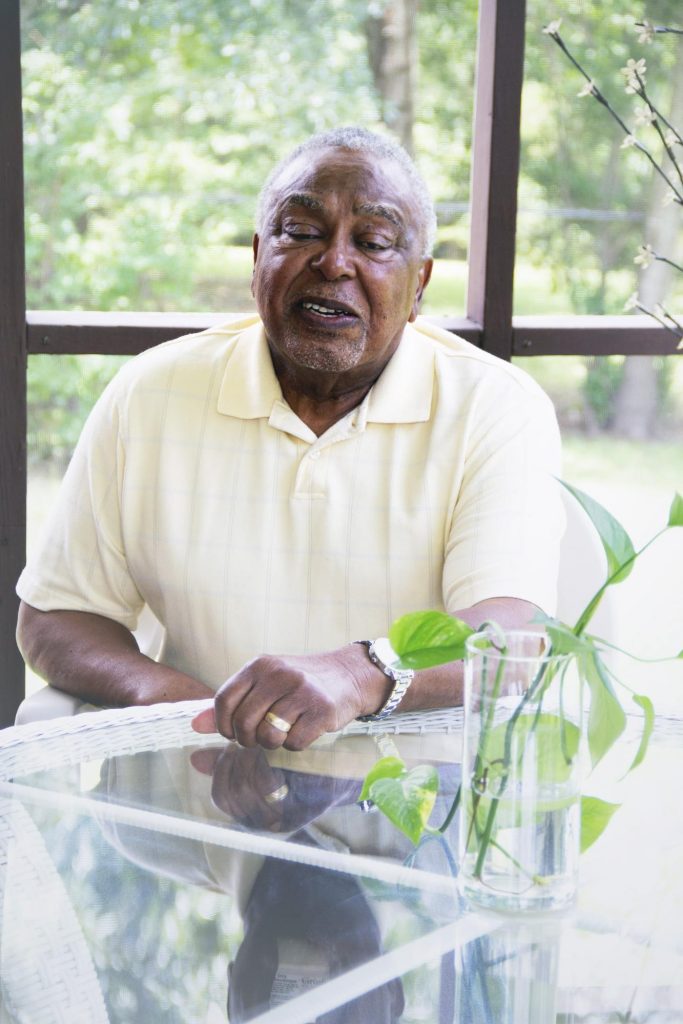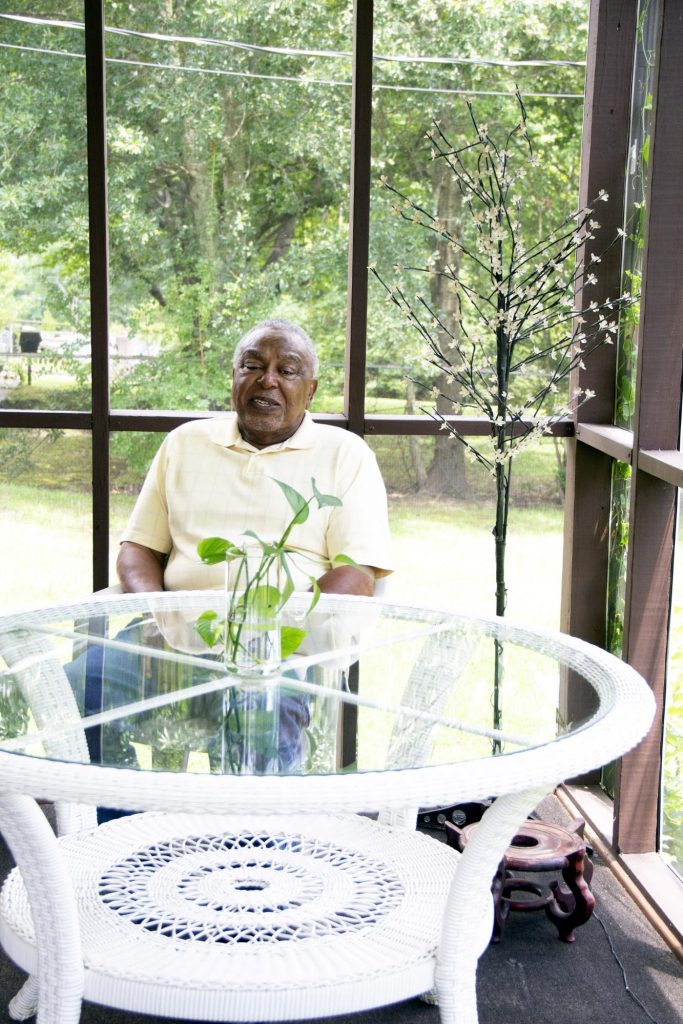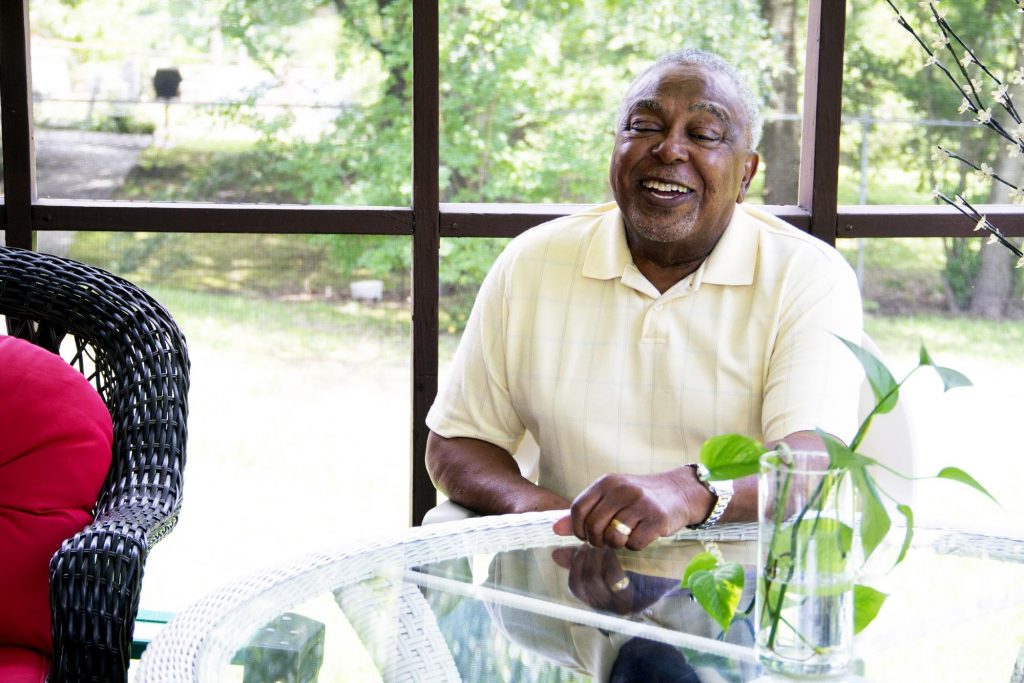“I grew up in what was called Newtown, where blacks and whites were separated by the railroad tracks. Bramlett Road was a small country road at the time. This is where the gas plant was located and where most of the runoff was released.”
Bobby Lowden is a long time resident of Greenville SC, spending much of his life close to the train tracks that pass through Bramlett Road. He’s seen first hand, the coal tar contamination from the manufactured gas plants that were owned by Duke Energy. As a child, he tried not to swim in the polluted streams and creeks, but sometimes he would wade in the water to play with his friends.
“The evidence of tar was on your feet and your shoes when you went home, my parents would get mad at us for walking through it. All the parents said not to get in the river, that’s really all they could do to help the situation at that time.”
“Something people don’t realize is that there was a train called the Swamp Rabbit train. The train would take carbons to warehouses. It used to run beside all the mills and sometimes we’d go down the Reedy River and sometimes the water might be blue, green, orange, or purple. Just depended on what materials they were dyeing that day at the textile mills.”
Historically, segregation and discrimination was a part of Bobby’s environment during this time. The water itself was a place where black and white children would pick on each other.
“We didn’t get along too well. Sometimes we’d catch whites on our side of the train tracks and we’d chase them out as they did the same to us. Sometimes they’d get in our side of the river and sometimes we’d get in theirs. I remember kids stealing each other’s clothes while they were swimming. The struggle with segregation and discrimination was always there, whether or not we knew the extent of it as children.”
Though filled with childhood adventure and the beautiful visuals of rustic train tracks by the river, Bobby also paints us a picture of Greenville, South Carolina during different times. Even though in this present state we are not segregated physically by rivers due to the color of our skin, we should be brave enough to realize the commonality between discrimination and pollution. Both are damaging, toxic, and have lasting negative effects.
“I was too young to know health issues in relation to the coal tar, but there were some kids that died young. I can’t think of a dozen kids now that I grew up with that are still living.”
People like Bobby Lowden are so important to Greenville’s history and our movement forward within the community. Bobby still wants to see more positive change for the underserved.
“I’d love to see more affordable housing and to give people a chance to make progress and live a decent life. There’s not too many of us left in this community and we have so much to share.”
-Story captured by Kali Llano

